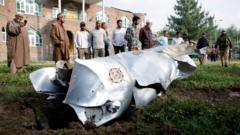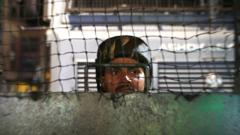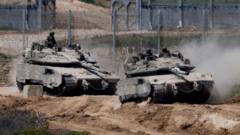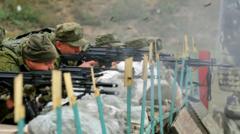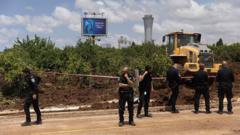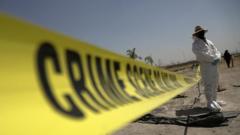Tensions rise as authorities face mounting criticism regarding safety and negligence following the tragedy that claimed lives and injured many.
Mourning Turns to Anger in Iran After Deadly Port Explosion
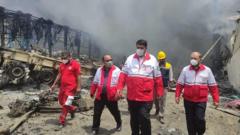
Mourning Turns to Anger in Iran After Deadly Port Explosion
A catastrophic explosion at Iran's largest port has sparked a wave of grief and outrage among citizens.
In Iran, emotional grief has swiftly transformed into outrage after a devastating explosion at the Shahid Rajaee port resulted in at least 40 fatalities and over 1,000 injuries on Saturday morning. The incident saw panicked individuals flocking to hospitals to donate blood, underscoring the community's urgent response to the disaster. As fires continued to burn well into Sunday, a toxic cloud was reported to hover ominously over affected areas, prompting the health ministry to advise residents in nearby towns, including Bandar Abbas, to stay indoors and take protective measures.
The local emergency response has seen schools and offices in Bandar Abbas close to facilitate recovery efforts, and a nearby festival intended for celebration was reoriented into a solemn memorial for victims. The authorities have declared a day of national mourning, alongside additional days of observances in Hormozgan province.
Underlying the physical devastation lies a growing blame game, exacerbated by speculation about the origins of the explosion. A maritime consultancy, Ambrey Intelligence, suggested that the visible fires prior to the blast indicated improper handling of hazardous materials meant for military applications. Anonymous sources linked to Iran's Islamic Revolutionary Guard Corps claimed that sodium perchlorate, a key ingredient for missile fuel, was involved.
In light of the explosion, voices across Iran have begun to question the competence of the government, asking how dangerous materials could be left inadequately managed. President Masoud Pezeshkian visited the site on Sunday, promising to address the disaster’s cause while the defence ministry contended that no military-grade cargo was present at the port.
As the nation grapples with the tragedy's implications, questions regarding potential impacts on Iran's economy loom large, given that the port is critical for nearly 80% of imports. Although initial warnings of food shortages were issued post-explosion, officials later mitigated concerns by stating that only part of the port had been affected.
To aid in recovery efforts, Russian President Vladimir Putin has dispatched specialized firefighting aircraft, while Chinese authorities reported that three of their nationals caught in the incident were stable. Condolences streamed in from various nations, including the UAE, Saudi Arabia, and others, reflecting regional solidarity during this crisis.
Amidst the chaos, the explosion coincided with ongoing diplomatic talks between Iranian and U.S. delegates in Oman regarding nuclear negotiations, raising further questions about the implications of this crisis on international relations.




